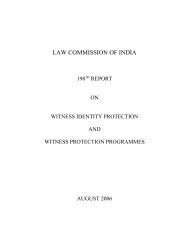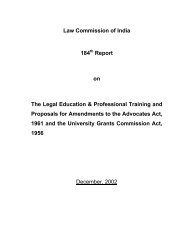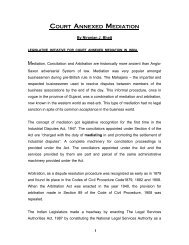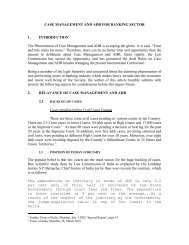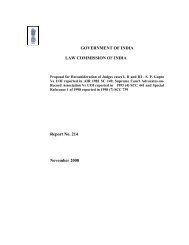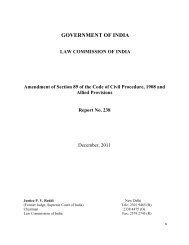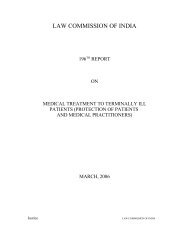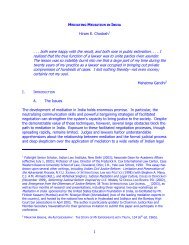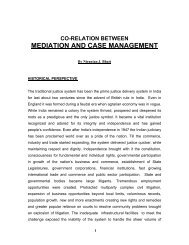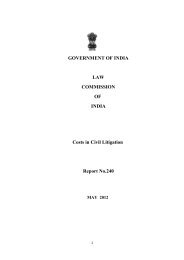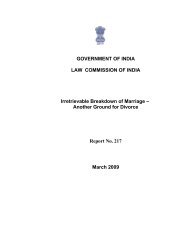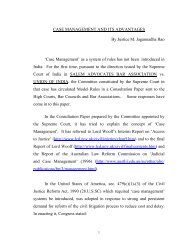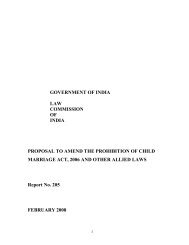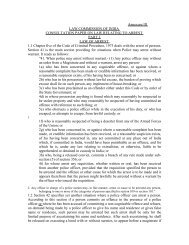229th Report - Law Commission of India
229th Report - Law Commission of India
229th Report - Law Commission of India
- No tags were found...
You also want an ePaper? Increase the reach of your titles
YUMPU automatically turns print PDFs into web optimized ePapers that Google loves.
3.6 Article 130 <strong>of</strong> the Constitution providing for the seat <strong>of</strong> theSupreme Court may now be noted, which is extracted below:“The Supreme Court shall sit in Delhi or in such other place orplaces, as the Chief Justice <strong>of</strong> <strong>India</strong> may, with the approval <strong>of</strong> thePresident, from time to time, appoint.”3.7 Article 130 is an enabling provision which empowers the ChiefJustice <strong>of</strong> <strong>India</strong>, with the approval <strong>of</strong> the President, to appoint place orplaces other than Delhi as the seat <strong>of</strong> the Supreme Court. Article 130cannot be construed as casting a mandatory obligation on the ChiefJustice <strong>of</strong> <strong>India</strong> to appoint place or places other than Delhi as the seat <strong>of</strong>the Supreme Court. No court can give a direction either to the ChiefJustice <strong>of</strong> <strong>India</strong> or the President to exercise the power under article 130. 73.8 If article 130 is liberally interpreted, no constitutional amendmentmay be required for the purpose <strong>of</strong> setting up <strong>of</strong> Cassation Benches infour regions and a Constitution Bench at Delhi. Action by the ChiefJustice <strong>of</strong> <strong>India</strong> with the President’s approval may be enough. It may alsobe noted that under article 130 the Chief Justice <strong>of</strong> <strong>India</strong> acts as apersona designata and is not required to consult any otherauthority/person. Only Presidential approval is necessary. However, incase this liberal interpretation <strong>of</strong> article 130 is not feasible, suitablelegislation/Constitutional amendment may be enacted to do the needful.3.9 If the judge-strength <strong>of</strong> each zonal Cassation Bench is confined tosix Judges, then only 24 Judges will be required for all the four zones to7Union <strong>of</strong> <strong>India</strong> v. S. P. Anand, AIR 1998 SC 261522



